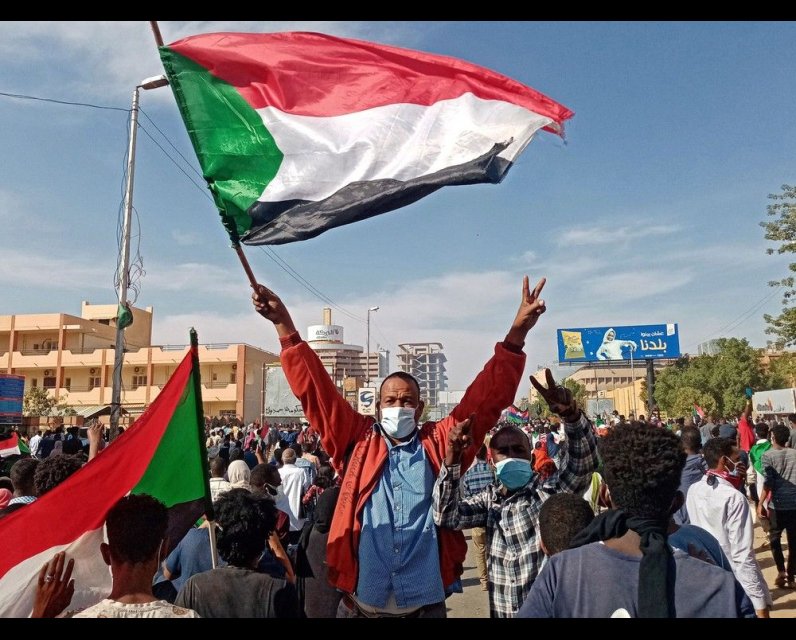Ex-Sudanese politician whose regime engaged in 'acts of subversion' wins chance at refugee status in Canada

A former Sudanese politician deemed inadmissible to Canada for being a member of a party that engaged in “acts of subversion against a democratic government, institution or process” has won a reprieve.
Abdelsakhi Abbas Adesakhi Ali came to Canada and claimed refugee protection after an April 2019 coup d’état in which then-president Omar al-Bashir was overthrown by the Sudanese Armed Forces.
But his refugee claim was suspended so a hearing could be held before this country’s Immigration Division, which determined he was inadmissible to Canada.
Ali took his case to Federal Court looking for a judicial review of the decision deeming him inadmissible. The judge determined that Canadian immigration officials failed to consider whether he might be subject to persecution if forced to return to Sudan.
The court heard Ali was a member of Sudan’s National Congress Party (NCP) when it was in power and held important political positions as a member of the legislative council of Khartoum from 2010 until 2015, then became a member of the country’s national parliament.
“He alleges, however, that in December 2016 he was interviewed on the radio and expressed his criticism of the direction the government was taking,” Justice Sébastien Grammond wrote in a recent decision out of Montreal.
“This cost him his position within the party, even though he kept his seat in parliament until 2019, when a coup d’état toppled General al-Bashir’s government.”
When Canada’s Immigration Division (ID) found Ali inadmissible, it noted he admitted to being a member of the NCP, said the decision, dated Oct. 10.
The ID reviewed evidence concerning the conduct of the government formed by the NCP.
“It found that the NCP, led by General al‑Bashir, harassed and arrested political opponents, notably with the help of the state security services, and was involved in various types of electoral fraud,” said the judge.
“Therefore, the ID found that the NCP was an organization that engaged in ‘an act of subversion against a democratic government, institution or process.’”
But Grammond said the ID failed to consider the principle of non-refoulement, the practice of not forcing refugees to return to countries where they are liable to be subject to persecution.
“I allow Mr. Ali’s application,” said the judge.
“The ID failed to consider whether Mr. Ali’s inadmissibility was consistent with the constraints imposed by international law, specifically, the principle of non-refoulement.”
The judge set aside the decision declaring Ali inadmissible to Canada, and sent the former politician’s case back to the ID for “redetermination” by a different decision maker.
Sudan has been locked in a civil war since April 2024.
“The internal conflict has killed tens of thousands of people and displaced over 11 million people,” according to Amnesty International. “People in Sudan are facing rampant violations of human rights and humanitarian law resulting in mass civilian casualties, gender-based violence, and a humanitarian catastrophe as parties to the conflict block aid to millions of civilians trying to survive without food or water.”
Ali’s case relied on a 2023 Supreme Court of Canada decision that “stated that the ID must necessarily consider the constraints stemming from international law, including the principle of non-refoulement, before making a finding of inadmissibility.”
That decision from the country’s top court “signalled a major change with respect to the role of the (Convention Relating to the Status of Refugees) and the principle of non-refoulement,” Grammond said.
The Supreme Court “underscored the presumption that statutes must be interpreted in a manner consistent with international law. It noted that this presumption assumed added force with respect to (Canada’s Immigration and Refugee Protection Act which) requires it to be construed and applied in a manner that ‘complies with international human rights instruments to which Canada is signatory,’ including the Convention. Most importantly, it required immigration decision makers to consider the Convention and the principle of non-refoulement when they interpret and apply the Act, even if the parties do not explicitly raise the issue.”
Grammond allowed Ali’s “application because the ID did not consider the issue that the Supreme Court required it to address. In this case, the only relevant exception to the principle of non‑refoulement is the danger posed by the person concerned to the security of the host country.”
The judge noted that, in Ali’s case, “the ID did not assess the danger” he personally poses to the security of Canada.
The judge conceded “it is difficult to define in advance what can pose a danger” to the country’s security, noting that’s a “forward-facing exercise.”
Grammond’s decision also pointed out that “it is also entirely conceivable that mere membership in an organization may in some cases be sufficient to conclude that a person is a danger to the security of Canada.”
Our website is the place for the latest breaking news, exclusive scoops, longreads and provocative commentary. Please bookmark nationalpost.com and sign up for our daily newsletter, Posted, here.

Comments
Be the first to comment